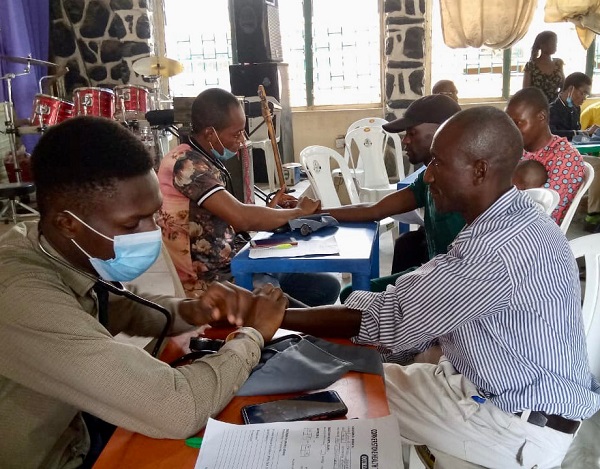
The Ministry of Health and Social Welfare has emphasised the monumental progress achieved through Nigeria’s Health Sector Compact, reinforcing the Federal Government’s unwavering commitment to transforming the healthcare landscape in the country.
Director of the department of health planning, research and statistics at the Federal Ministry of Health (FMOH), Dr. Chris Isokpunwu delivered this assertion on Tuesday in Abuja during the Health Sector Reform Coalition (HSRC) Annual General Meeting Policy Dialogue 2.0 and Charter Adoption.
Isokpunwu conveyed the significant role the Health Sector Compact is poised to play in reshaping the healthcare system, emphasising its potential to foster positive developments within the sector. He stressed that the compact, with its focus on equitable resource allocation, improved infrastructure, and the pursuit of universal health coverage, is positioned to make substantial strides in advancing population health outcomes nationwide.
Nigeria coordinator of epidemics prevention, Global Health Advocacy Incubator (GHAI), Mr. Emmanuel Alhassan highlighted the pivotal decisions made during the annual meeting, noting their impact on the success of the country’s health sector. Alhassan stressed the importance of setting actionable and achievable milestones that can be tracked, urging stakeholders to shift from complaints to providing solutions.
The country director of USAID GHSC-PSM, Mr. Mike Egboh emphasised the paramount importance of positioning HSRC as a reputable and reliable organisation. He underlined the need to fully operationalise the National Health Act, emphasising that this requires not only diligence but also steadfast daily commitment.
“It’s not merely a task; it’s a continuous dedication that we must fervently emphasise,” he asserted. Egboh highlighted the criticality of substantive partnerships with other stakeholders, emphasising that collaborative efforts are essential for translating shared aspirations into tangible outcomes. He envisioned HSRC as a catalyst and advocate for change in the Nigerian health reform space.
Egboh outlined the future role of HSRC, calling for support in building and strengthening public health capacity in Nigeria. He urged HSRC to serve as a champion for optimal equitable health and well-being for all Nigerians, acting as a clearinghouse for national, regional and global information, best practices, and health resources. He envisioned HSRC as a non-profit, non-political, and non-religious organisation, serving as a watchdog to hold government agencies and the private sector accountable for their stewardship.
Meanwhile, the chairperson of HSRC, Mrs. Chika Offor clarified that the meeting’s objective was to engage in a dialogue on health systems strengthening through effective governance and to review and adopt the HSRC Charter. The charter outlines the organisation’s mission and vision, founded on technical principles, transparency and accountability.
The Health Sector Reform Coalition’s Annual General Meeting Policy Dialogue 2.0 and Charter Adoption mark a pivotal moment in Nigeria’s healthcare transformation journey, with stakeholders emphasising collaboration, commitment, and actionable strategies to advance the nation’s health sector.

